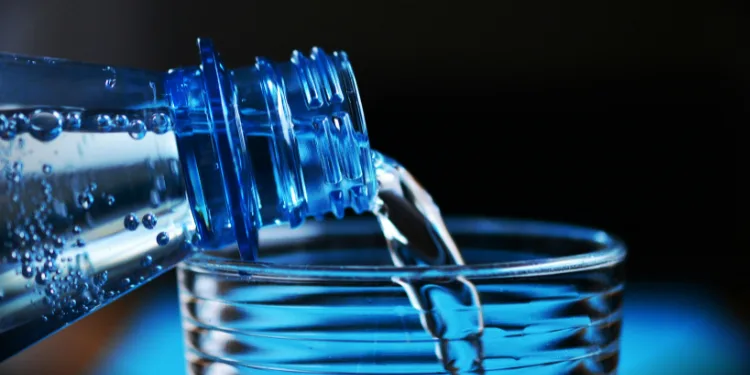
“Drink more water” is a piece of advice we have heard a thousand times. Although it’s likely one of the most prevalent health recommendations, it’s not always as straightforward as it may seem, if we’re being truthful. Although water is undoubtedly the most organic and readily available resource for our bodies, maintaining hydration amidst the bustle of daily life is more difficult than we may realize. Drinking water frequently falls to the bottom of the list of priorities due to hectic job schedules, never-ending cups of coffee, and quick meals consumed while on the move. At times, it seems more like a duty than a refreshing practice when we finally reach for that glass. The reality is, though, that staying hydrated is about much more than just satisfying your thirst—it’s about your energy, concentration, mood, and general well-being. Additionally, the way we approach it can make all the difference.
One of the biggest fallacies is that if you’re thirsty, you’re OK, get water when your body tells you to. The truth? Your body is already dehydrated by the time you experience thirst. For this reason, that afternoon headache or that abrupt drop in energy are not always caused by stress or sleep deprivation; instead, they might be signs that your body is craving hydration. For many of us, the answer is not simply to drink more water, but rather to make it simpler and more fun to maintain a regular intake.
This is where hacks come into play. First, make water visible. Although it may seem easy, it is more difficult to ignore a reusable water bottle that is kept on your desk, in your purse, or in the car. When it comes to hydration, out of sight, out of mind certainly holds. Second, add some flavor! Add lemon, cucumber, berries, or a dash of natural juice to your water if it bores you. All of a sudden, it seems less like a chore and more like an indulgence. Third, connect it to habits. Before coffee in the morning, before each meal, and before going to bed, have a glass. Water is turned into a habit by these tiny anchors rather than an effort.
Hydration also includes making wise food choices in addition to drinking. Fruits and vegetables like celery, cucumbers, oranges, and watermelon are rich in water and electrolytes, which promote hydration. You can even get a boost from soups and smoothies. Conversely, we sometimes underestimate how much water is drawn from our bodies by coffee, alcohol, and even salty foods, leaving us feeling more depleted than we realize. You don’t have to give them up, but you may make a big difference by balancing them with more water.
Here’s the tip that revolutionized my life as a parent, busy professional, or anyone always on the go: set reminders. Whether it’s an app on your phone, sticky notes on your laptop, or just telling yourself, “I’ll sip water every time I check my email,” these cues help establish consistency. Hydration soon feels normal rather than forced.
In reality, maintaining hydration does more than keep your body functioning; it also changes how you present yourself daily. It’s incredible how such a simple practice may result in clearer skin, increased attention, more energy, and fewer headaches. And despite the challenges that life’s hectic pace presents, staying hydrated is one of those little decisions that has a significant domino effect.
Therefore, don’t roll your eyes the next time someone tells you to “drink more water.” Think of it as one of the easiest yet most effective things you can do to take care of yourself. Keep in mind that hydration is not about the quantity but rather about developing a routine that suits your way of life.
Post Disclaimer
Utilizing my own personal experiences as well as my background as a Registered Nurse, I share my enthusiasm for travel and health on this blog. Though I love what I do and sometimes talk about tactics for modest health improvement, keep in mind that the material provided might not be exact. The material herein is just for self-improvement. The content shared draws on my own experiences, thoughts, and stories. With this in mind, readers should consult their healthcare providers about any concerns they may experience.
Since each person has a different health path, what helps one person may not help another. Readers should consult their personal healthcare providers for personalized guidance based on their individual needs and circumstances. Rather than replacing the professional, my goal here is to inspire, enlighten, and start conversations that improve and make life more fulfilling relations between you and your medical staff.
gjzm9d
Awesome piece of article;water is of paramount in our daily life and much much better than the favored juices people keep buying.